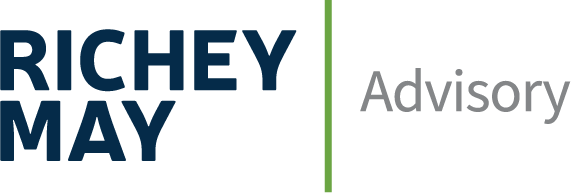Business Insights
5 Questions to Ask About Your Budgeting & Forecasting Tool
Articles by: Richey May, Apr 30, 2019

Apr 2019 – Recent events have resulted in fewer budgeting & forecasting solutions available to lenders. Consequently, many lenders are reevaluating the solutions they rely on for budgeting and forecasting insights.
With the technology solutions for everyday business challenges changing daily, it’s necessary to evaluate your tools and processes on a regular basis. If you’re comparing budgeting and forecasting products for your mortgage business, consider each of the following questions when making your decision.
1. Does your Budgeting & Forecasting tool integrate with the other tools you already use? (LOS, POS, HRIS, ERP, accounting software, BI tool, etc.)
This might seem like an obvious feature to ask about, but it’s crucial to get details about the flexibility of available connectivity and the ability to create custom connections to APIs. The tools you use today might not be the same tools you use tomorrow, so you will want to make sure you aren’t forced to change all your tools in response to a change of LOS or POS system.
Gather a list of all the systems that power your budget and spending decisions and have it ready for any demo calls you’re taking. If possible, determine if these systems have a support person your salesperson can contact to make sure the integrations will function correctly before you buy. Ask about implementation support so you don’t have to commit to (or find) external development resources.
2. Is the tool capable of creating holistic forecasting models?
How easy is it to roll up business initiatives to teams, teams into departments, departments into executive leadership and all of them into a complete company picture? If any of these divisions change, how easy is it to model the impact on the budget? It’s crucial to be able to quickly model any change in structure or spending with relative accuracy to make the best decision for your business.
The seasonal nature of the mortgage business gives the illusion of predictable volume. To an extent you can plan some expenses, such as additional operations staff, around the busy season. But other systemic changes may be harder to model and require an intelligent tool.
3. Can you track and communicate Budget vs. Actuals easily?
It should be easy to track performance to the budget to every level in the company on a regular basis. Some initiatives will take time to bear fruit, which makes it even more important to have an easy way to track any return directly to specific programs. You should be able to cut your losses and double down on successes easily.
Don’t underestimate the importance of easy communication as well. Teams with no goal and no way to track their progress don’t make for happy, productive environments. Senior leaders with a clear plan should be communicating these numbers regularly to keep everyone on track and make changes when they are needed. Your managers shouldn’t be surprised to learn they have spent their entire allocated budget after the fact.
4. Does the tool help you create processes and policy based on the budget?
Policies and processes need to be evaluated on a regular basis to determine if they are still the right way to do business. Are your current processes really the best way to go forward or are you relying on “the way we have always done things?”
In order to create effective change, you may want to test new processes on different groups and track their progress. You’ll also want to be able to drill into individual receipts to get more context for certain business needs to better evaluate them.
5. Can you control access to the data intelligently and export it when needed?
Your CIO will never approve a tool for the financials that doesn’t have access controls. What you should be looking for is not just the presence of this functionality, but how easy it is to maintain for the accounting and finance team. If you have to manually enter HR information to keep reporting access up to date, it’s not serving to reduce menial data entry. Look for tools that are updated by the HR system, a spreadsheet you can upload or some combination thereof. It should also be easy to change P&L rollups and have that reflected in a manager’s view.
Further, most systems can export to Excel. Look beyond that basic functionality for tools that can write back from Excel to reduce the learning curve of a new system and create historical backups where needed.
Using the right tool for budgeting and forecasting can shift your finance team from a data entry and cleanup crew to business fortune tellers. To learn more about how Richey May Technology Solutions can solve your unique challenges with our Budgeting & Forecasting Tool visit our service page or reach out to Spencer Smoot.


